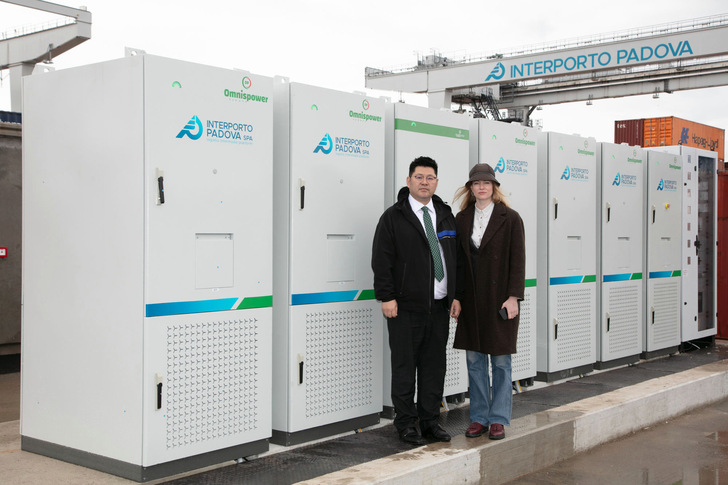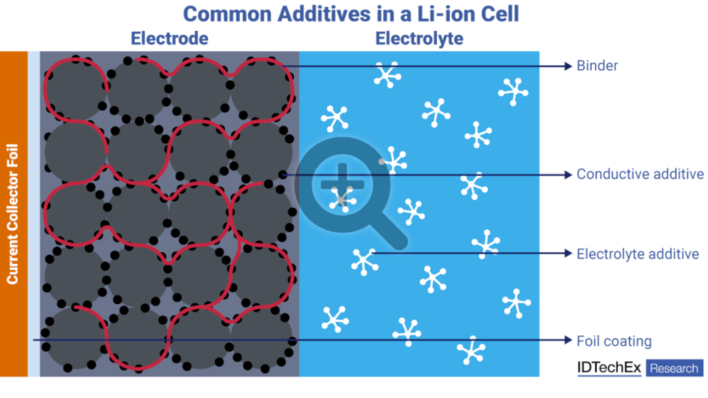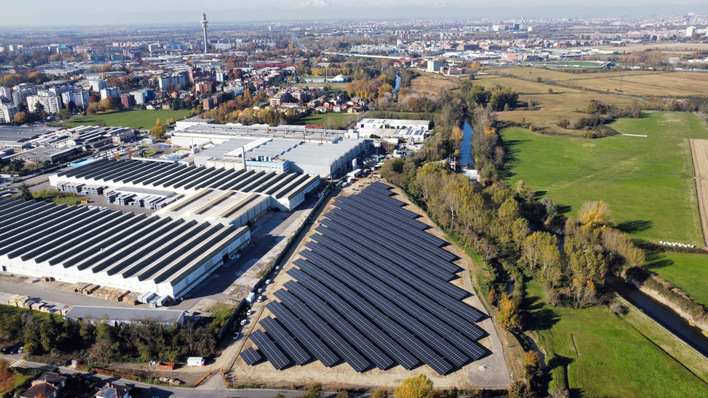At the heart of Omnispower Europe's battery lies its exceptional performance and functionality, distinguishing it as one of the few in Europe to boast certification for the entire system, rather than just its individual components. Practically speaking, anecdotes abound regarding the diminished performance of electric vehicles in winter conditions. This stems from the energy-intensive process of heating and cooling the battery, a challenge that few manufacturers have effectively addressed. However, Omnispower Europe and its partners have not only devised a solution to optimize battery performance but have also tailored it to accommodate high-capacity storage units, boasting capacities up to 215 kWh.
See also: BIPV for building designed by Daniel Libeskind in Lithuania
Orinta Eivaite, CEO of Omnispower Europe, underscores the modularity of the battery, allowing for seamless integration of modules to scale up total capacity, potentially reaching a remarkable 2.5 MWh. Extensive testing across diverse global environments has refined the battery's adaptability to varying climatic conditions, reaffirming Omnispower Europe's commitment to precision and quality in development.
Helping Italy’s most significant land terminal cut costs
The deployment of Omnispower Europe's smart battery at Padua, Italy's pivotal land terminal, illustrates its transformative impact on operational efficiency. With a storage capacity of 1.5 MWh, the battery modules offer flexible energy utilization, optimizing energy consumption during peak periods.
Eivaite explains that quantifying the savings from implementing a smart battery at the Italian land terminal is challenging, but the benefits extend beyond finances. The company must decide whether to retain the energy for its own use or contribute to market equilibrium by selling excess stored energy.
She illustrates potential savings scenarios: "Batteries enable businesses to cut critical load charges by using stored energy during peak electricity demand, ultimately reducing overall electricity expenses. Additionally, load shifting—storing electricity during low-cost periods and utilizing it during high-cost periods—can lead to significant cost savings." Eivaite emphasizes the resilience provided by stored energy during supply chain disruptions, allowing uninterrupted operations and preventing potential losses.
Furthermore, she highlights the convenience brought by the battery management system: "The primary advantage is the elimination of manual workload management. Our AI-powered system evaluates environmental factors and autonomously selects optimal actions tailored to business needs."
Is there a battery for everyone?
Experts emphasize the importance of simulating various scenarios to achieve optimal energy performance, a task handled adeptly by the intelligent battery management systems.
Also interesting: New opportunities for the European battery industry
Eivaite elaborates on the significant benefits of this battery type: "Businesses with substantial electricity consumption and those susceptible to power outages stand to gain the most. Before crafting a tailored energy storage solution, we conduct a thorough analysis of the customer's requirements, considering factors such as geographical location and available power infrastructure. Our aim is to select the most efficient battery configuration to meet their needs."
She further notes the increasing prevalence of energy storage solutions, attributed to the rising adoption of solar and wind power generation. However, she underscores the critical role of materials in battery manufacturing and advises consulting experts to ensure quality and suitability for specific applications. (mfo)









